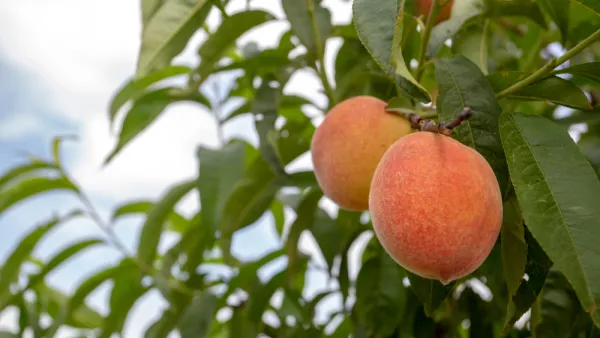An article by Colleen Fuller highlights collaborative initiatives in Maine's food system as well as key challenges the state faces in reaching a goal of increasing and broadening access to, and consumption of, local food.
Maine is investing more in local agriculture and is taking steps to return to a time when Maine was the "bread basket of the Northeast" and the majority of food consumed in Maine was produced in Maine. States interested in promoting local foods as part of larger planning efforts can learn from the successful collaborative approaches activating interest in Maine's food system.
Collaborative initiatives in Maine's food system include:
- Local Food Councils. Spearheaded by the Maine Network of Community Food Councils, local councils across the state apply a systems approach to supporting and strengthening food production and access. Efforts include the Maine Food Atlas, an asset mapping tool focused on food.
- Maine Food Strategy. This initiative is convening a statewide participatory process that will identify and advance shared goals to support a robust food economy in our state.
- Maine Local Foods Access Network (MLFAN), a group of Maine nonprofits collaborating to improve low-income access to locally grown foods across the state. Activities include Maine Harvest Bucks, where SNAP shoppers receive bonus local fruits and vegetables, stretching limited benefits much further.
- Maine's Farm and Fish to School. This network knits together a wide diversity of students, teachers, school nutritionists, parents, farmers and groups who support child nutrition and Maine agriculture.
- Maine Farm & Sea Cooperative, a procurement and food service management company that provides Maine institutions with the highest possible percentage of locally produced, value-added food.
Despite Maine's growing food revolution, there are challenges to promoting local food, such as the lack of processing facilities and poor infrastructure.
Planners can support local food initiatives by having strong, clear ordinances that prevent conflict between producers and their neighbors, such as local ordinances that strengthen state right-to-farm rules and allow farm stands and farmers' markets.
FULL STORY: Maine’s Road to a Food Revolution

Analysis: Cybertruck Fatality Rate Far Exceeds That of Ford Pinto
The Tesla Cybertruck was recalled seven times last year.

National Parks Layoffs Will Cause Communities to Lose Billions
Thousands of essential park workers were laid off this week, just before the busy spring break season.

Retro-silient?: America’s First “Eco-burb,” The Woodlands Turns 50
A master-planned community north of Houston offers lessons on green infrastructure and resilient design, but falls short of its founder’s lofty affordability and walkability goals.

Test News Post 1
This is a summary

Analysis: Cybertruck Fatality Rate Far Exceeds That of Ford Pinto
The Tesla Cybertruck was recalled seven times last year.

Test News Headline 46
Test for the image on the front page.
Urban Design for Planners 1: Software Tools
This six-course series explores essential urban design concepts using open source software and equips planners with the tools they need to participate fully in the urban design process.
Planning for Universal Design
Learn the tools for implementing Universal Design in planning regulations.
EMC Planning Group, Inc.
Planetizen
Planetizen
Mpact (formerly Rail~Volution)
Great Falls Development Authority, Inc.
HUDs Office of Policy Development and Research
NYU Wagner Graduate School of Public Service


























